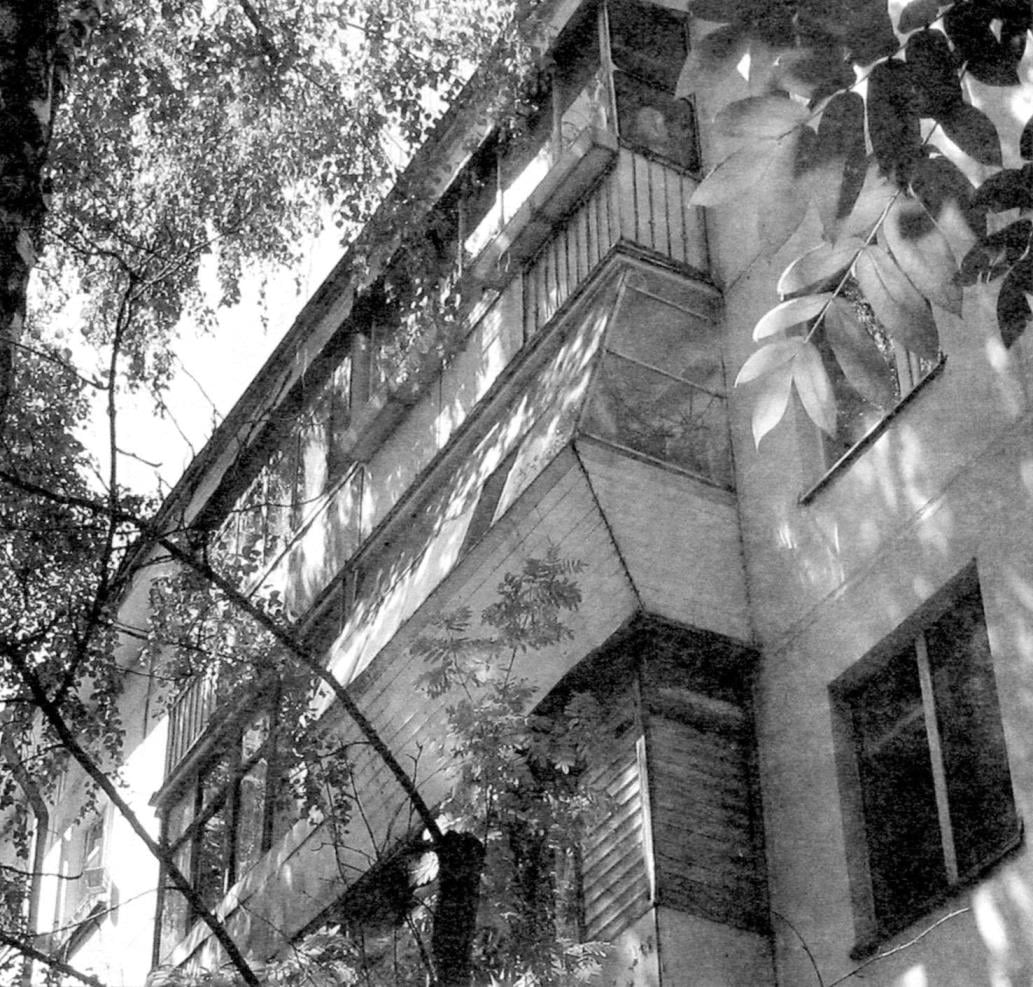 For apartments small area of the room is a significant addition to its “squaring”, but not all season and all weather. To ensure these conditions, the balcony must be protected from rain and wind, i.e. at least glazed, which was not in the houses built in Soviet times.
For apartments small area of the room is a significant addition to its “squaring”, but not all season and all weather. To ensure these conditions, the balcony must be protected from rain and wind, i.e. at least glazed, which was not in the houses built in Soviet times.
The arrangement of the balconies on the funds or on their own masters were prohibited: it was believed that it spoils the architectural appearance of the house. But because of modern mass glazing of balconies in the “Soviet” houses – is a forced measure.
It is understood and entrepreneurs, widely organize such a service.
But most of their designs are such that when entering the balcony you feeling cramped: to breathe fresh air, not even to lean, become almost inaccessible, and boxes with flowers…
Offers design with a ledge only glazed parts. But it is necessary a device of the canopy roof over this ledge. And here to you can be claimed from the neighbors above: the spray from the rain drops Bouncing off the visor fall partly on their balcony.

The scheme of glazing balconies (in cross section):
1 – front (steel area №2,5, 4 pieces); 2 – cross member (steel area №2,5, 4 pieces); 3 – coupling (steel strip 4X25,21 PCs); 4 – the guide (aluminum profile, 4x); 5 – siding (clapboard, siding); 6 – glass (s4); 7 – dowel or screw (12 PCs); 8 – bolt M4 (24 pieces); 9 – podokonnaja a Board; 10 – flower box; 11 – shelf; 12 – additional screed (steel strip 4×25, 7); 13 – upper and lower walls (hardboard); 14 – guides (plastic, 2 pieces); 15 – dampers (plexiglass)
So I decided to glaze the balcony itself and to its original project that would eliminate these problems. I and my family received:
1 – more volume on the balcony for the storage of domestic supplies;
2 – an extra shelf for placing flower collection outside balcony area, but under the glazing, i.e. protected from the weather;
3 – the ability of the suspension pots, which does not restrict and does not interfere with walking or working on the balcony;
4 – a sense of security and at the same time space while on the balcony.
The proposed “orangery” is simple and does not require professional skills for its installation on their own, as well as significant material costs and scarce materials, the range of which is quite small.
It is also important that all work is performed from your balcony, regardless of the floor.
In the description of the structure used by the scheme, made on a scale, but without specifying a size, as the repetition of anyone of the readers he will have to be guided by the measurements that are different.
The Assembly design precedes manufacture of individual items, types which are few: struts, crossmember, brackets. Glass all the same (except the side), and siding strips trim.

Part of the interior “prirodnogo” balcony
You can start with the manufacture of steel area racks (in the diagram position. 1). I have six pieces. The first of them can serve as a template to mark the holes in the rest of the posts for mounting thereto four crossbars (POS. 2), carried out also from the corner 25×25 mm. the Coupler (POS. 3) through which racks are mounted to the balcony slab and the rail fence, made from steel strip 25×4 mm. cross-section of Ties – different lengths, determined by the place. To balcony plates of the screed are being targeted with steel anchors or screwed “the screws”, is screwed into the predrilled holes with plastic plugs. To trim the top balcony railings and uprights are mounted on tie bolts M4 (with washers and nuts) through the predrilled holes. It should be noted that the extreme middle of the screed is installed at an angle (approximately 45°) to the manifold. This ultimately ensures the rigidity of the whole structure.
Racks connected by three crossbars (POS. 2), and the crossbars pre-mounted M3 screws with flat head dural rails (POS. 4) for glass (glass thickness 4 mm). The rest of the fastener is also provided with M4 screws. Guides allow you to push the glass, opening up nearly half of the glazed part of a balcony, and fully closed in bad weather.
To the lower part of the uprights attached to the sheathing, the choice of which material is quite wide: molded from different types of wood, siding, plastics and even metal.
The median tie mounts resistant to the top rail of the fence of the balcony serve as basic elements of the sill. But sill I made only half the width of the increment of the balcony. Proximal half of left open, there set boxes floral collection. Below the sill the full length of the balcony gave a shelf of planks laid on extra ties. On the shelf place the tools (since I use the balcony as a home workshop) and other household items.

Shelf under a window sill
Added the rest of the balcony was closed partially (top and bottom) walls of ergalievich (MDF) sheets. In the middle between them mounted in guides for sliding damper made of Plexiglas (like bookshelves). The leaves and louvers painted in white color (can be in any other suitable).
Steel handrail fencing covered warm railings. The railing was made of toilet paper rolls, cut in half lengthwise, and soaked in PVA glue. In strength they are superior to wood, although they are not required.
There were fears that the glass can break if dropped on them icicles. But experience has shown that this is not happening, as the glass is rather thick and its angle of deviation from the vertical is small – even street dust does not settle on it.
V. ALESHIN



